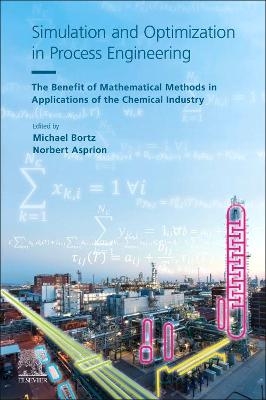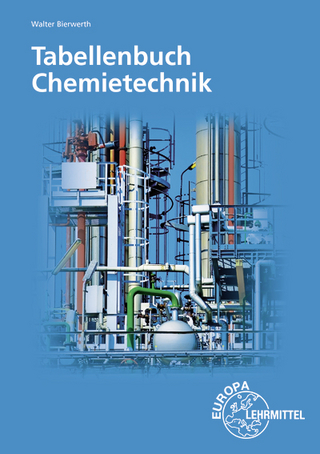
Simulation and Optimization in Process Engineering
Elsevier - Health Sciences Division (Verlag)
978-0-323-85043-8 (ISBN)
With each chapter bringing together expertise from academia and industry, this book is the first of its kind, providing demonstratable insights.
Michael Bortz studied Physics in Dortmund and Grenoble. He received his Ph.D. in many particle physics at Dortmund University in 2003. After that, he worked as a PostDoc at universities in Wuppertal, Canberra (Australian National University), Oxford, and Kaiserslautern. In 2009 he joined the Fraunhofer Institute for Industrial Mathematics in Kaiserslautern, where he is now leading the department for optimization of technical processes. His research interests are in modeling, simulating, and optimizing processes in different application domains, including medical therapy planning, mechanical, and chemical engineering. He has realized numerous projects with cooperation partners from the chemical industry, leveraging the benefit of interactive decision support. Since 2021, he is associate professor at the Technical University Kaiserslautern. Norbert Asprion studied mechanical engineering at University of Kaiserslautern, Germany and received his Ph.D. (Supervisor Prof. G. Maurer) in the field of thermodynamics of hydrogen-bonding solutions from Kaiserslautern University in 1996. Since then, he has been with BASF SE in Ludwigshafen. After several positions in process development and six years in technical marketing, he is now product manager for “Computational Engineering Solutions in the department “Digitalization in Research & Development. His research interest is focused on process modeling, simulation, and optimization to support decision making in process development. He is a Research Fellow at BASF, a member of the EFCE CAPE working party and the COLaN management board.
1. The PC-SAFT Equation of State 2. Don't Search - Solve! Process Optimization Modeling with IDAES 3. Thinking Multicriteria - A Jackknife When it Comes to Optimization 4. Dynamic modelling, simulation, optimization 5. Solvent Recovery by Batch Distillation - Application of Multivariate Sensitivity Studies to High Dimensional Multi-Objective Optimization Problems 6. Modeling and Optimizing Dynamic Networks: Applications in Process Engineering and Energy Supply 7. The Use of Digital Twins to Overcome Low-redundancy Problems in Process Data Reconciliation 8. Real-Time Optimization of Batch Chemical Processes – Combining within-batch and batch-to-batch corrections 9. On economic operation of switchable chlor-alkali electrolysis for demand side management 10. Optimal experimental design for dynamical processes 11. Characterization of reactions and growth in automated continuous flow and bioreactor platforms – From linear DoE to model-based approaches 12. Product development in a multicriteria context 13. Dispatching for batch chemical processes using Monte-Carlo simulations -- a practical approach to scheduling on the shop floor 14. Applications of the RTN Scheduling Model in the Chemical Industry
| Erscheinungsdatum | 29.04.2022 |
|---|---|
| Verlagsort | Philadelphia |
| Sprache | englisch |
| Maße | 152 x 229 mm |
| Gewicht | 630 g |
| Themenwelt | Naturwissenschaften ► Chemie ► Technische Chemie |
| Technik | |
| ISBN-10 | 0-323-85043-X / 032385043X |
| ISBN-13 | 978-0-323-85043-8 / 9780323850438 |
| Zustand | Neuware |
| Informationen gemäß Produktsicherheitsverordnung (GPSR) | |
| Haben Sie eine Frage zum Produkt? |
aus dem Bereich


